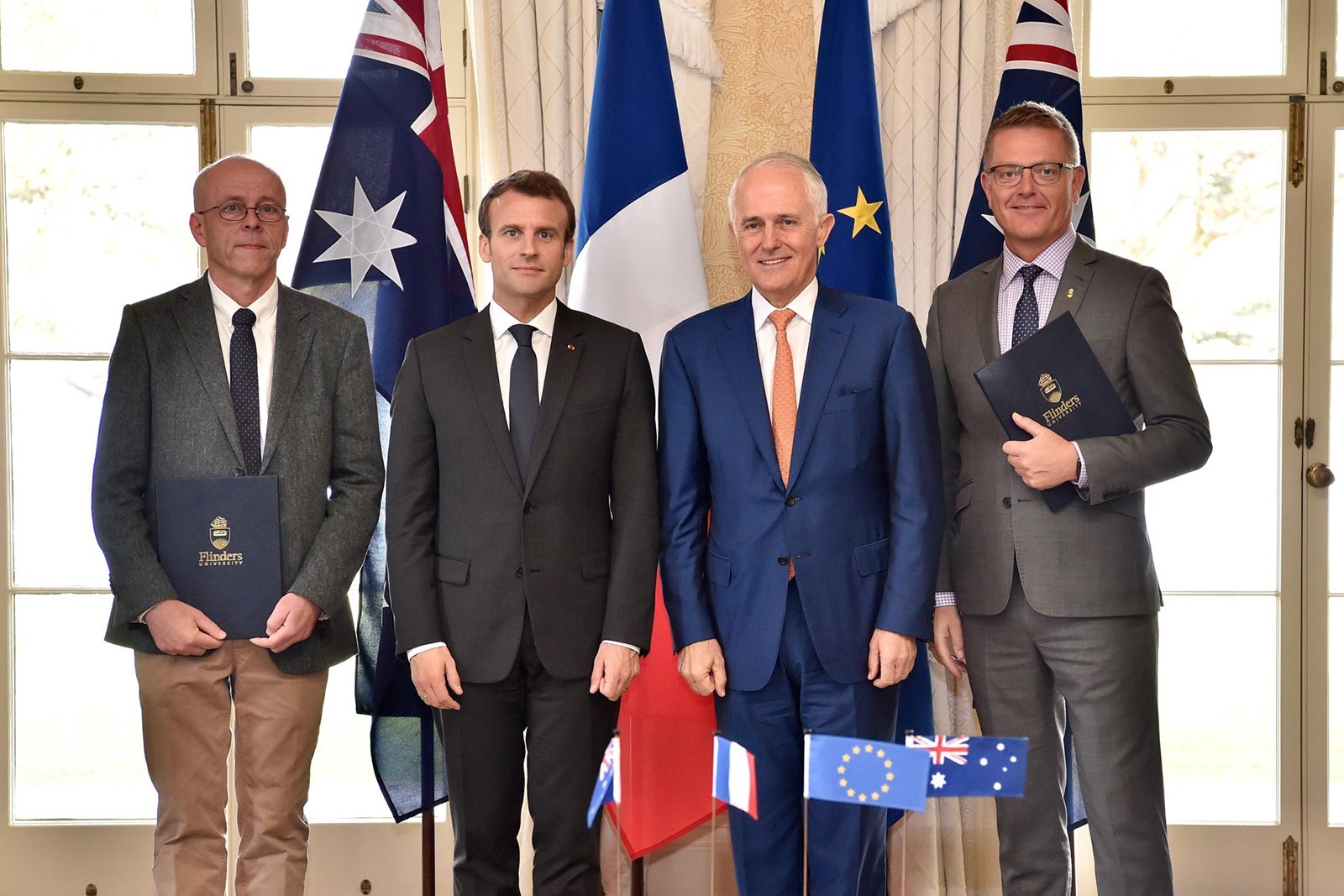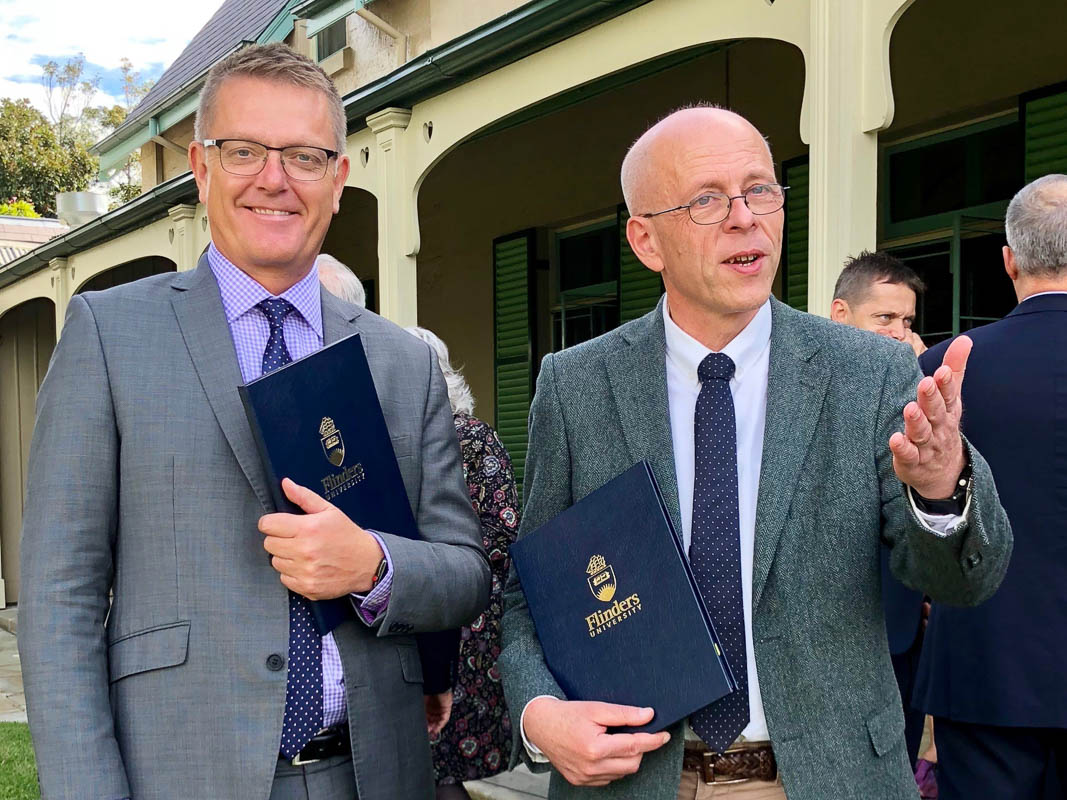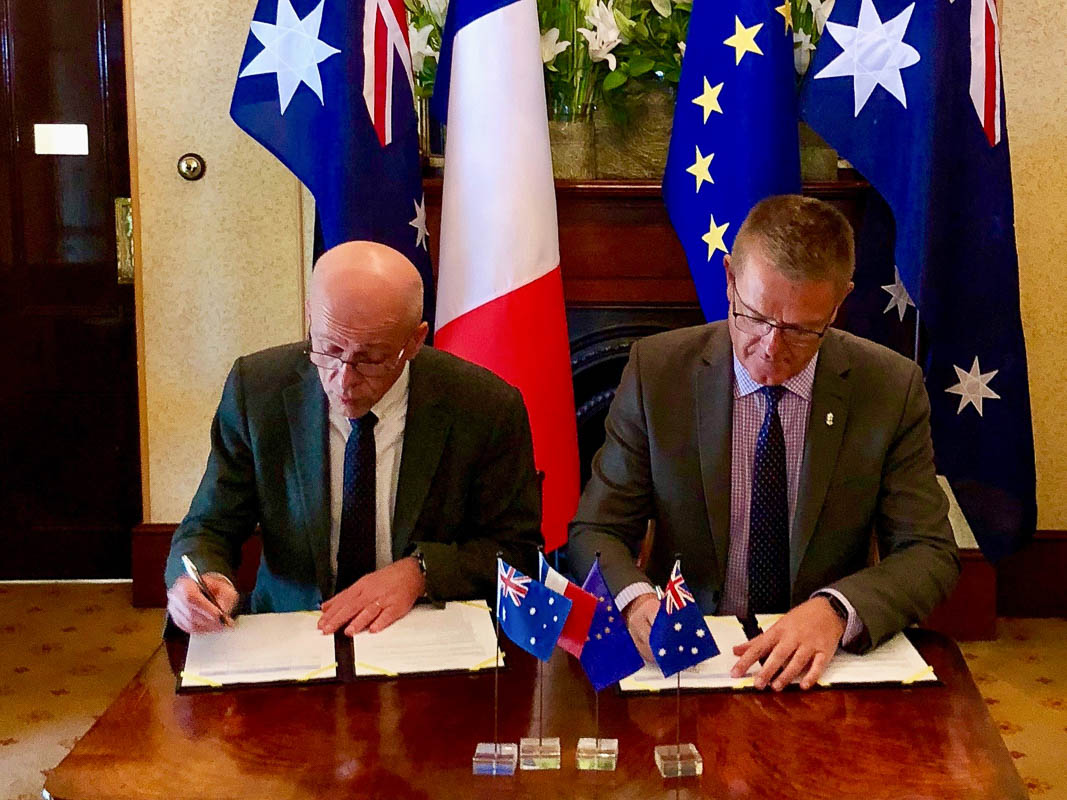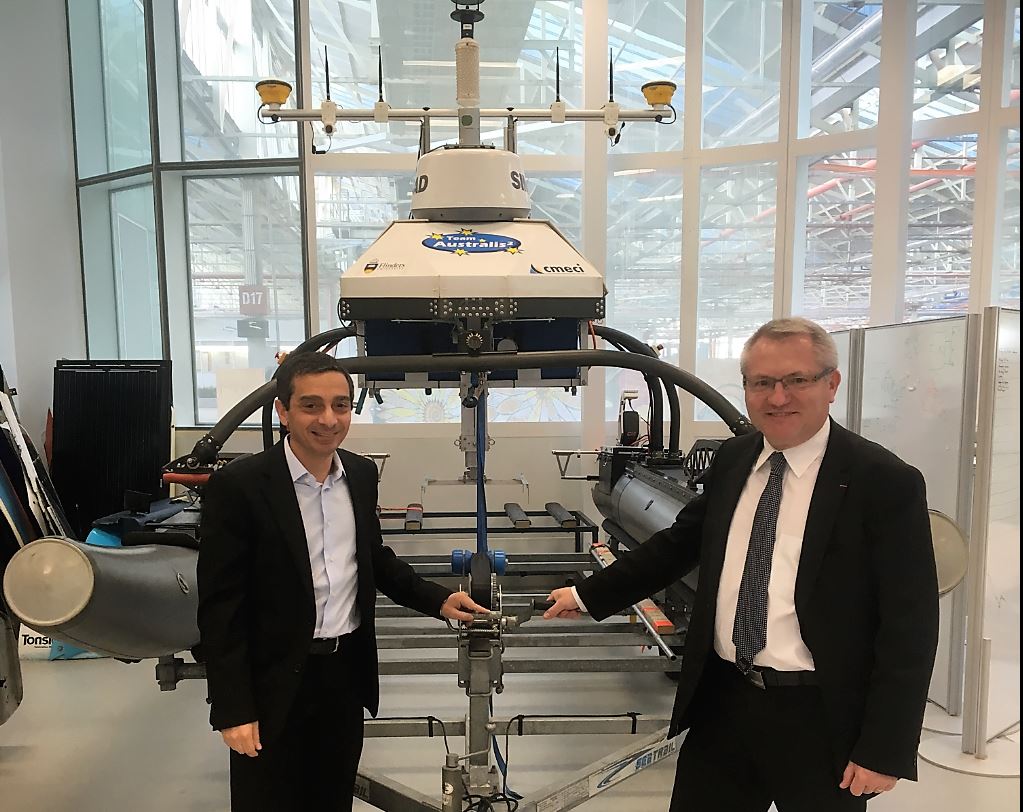
Australian-French research collaboration on marine technologies has taken a further step forward with two significant announcements involving collaborations with Centrale Nantes, and with Defence giant Thales and ENSTA Bretagne.
The announcements took place in Sydney at a ceremony attended by His Excellency Emmanuel Macron, President of the French Republic, and The Honourable Malcolm Turnbull MP, Prime Minister of Australia, demonstrating close scientific and research collaboration between Australia and France.

Centrale Nantes agreement
Researchers from the Flinders Centre for NanoScale Science and Technology and Centre for Maritime Engineering, Control and Imaging will join Centrale Nantes’ world-leading researchers on projects focused on two key themes of Additive manufacturing, and Naval hydrodynamics and simulator development.
The partnership will also provide opportunities for French and Australian students to undertake exchange placements and internships.
This collaboration will initially focus on two project areas.
The first involves marine propellers, and will investigate the use of nano-composite technologies for manufacturing marine propellers to increase blade strength and reduce noise and corrosion, as well as reducing manufacturing costs associated with existing metal fabrication technologies. The project will develop experimental models to explore the feasibility of manufacturing “smart” composites with embedded sensors to monitor performance and assure structural integrity.
The second relates to 3D printing of metal-polymer composite materials. The field of additive manufacturing is still in its early days and there are still many challenges to research ahead of its widespread adoption.
The newly formed Centrale Nantes-Flinders University research team will work together to scope and understand the challenges in 3D printing of metallic and composite materials, with the work of the investigative team researchers being at the forefront of additive manufacturing development.
Professor Arnaud Poitou, Director of Centrale Nantes, says the collaboration promises to advance global understanding in the field of marine technology.
“Centrale Nantes is pleased to welcome Flinders University to join our world leading researchers in Nantes. The research teams at Flinders will further enhance our efforts in this area to assist in developing the maritime technologies of the future,” Professor Poitou says.
Vice-Chancellor Professor Colin Stirling thanked Centrale Nantes for the opportunity to collaborate with Centrale Nantes research teams.
“Flinders University welcomes the opportunity to share its defence research expertise on the international stage, and grow its relationship with Centrale Nantes to make a positive difference to an accelerating global industry,” Professor Stirling says.

Thales ENSTA Bretagne agreement
Deeper collaboration between Australia and France in advanced sonar and naval robotics technology will flow from a Memorandum of Understanding (MOU) between Flinders, ENSTA Bretagne – a leading Graduate and Post-Graduate Engineering School and Research Institute in Brest, France, and Thales.
Thales Australia CEO Chris Jenkins says the agreement will deepen and extend well established research linkages between Australia and France in order to contribute to the future submarine program in Australia.
He said President Macron’s official visit is an opportunity to highlight the strength of the strategic relationship between Thales and France, a relationship underpinned by linkages like the research MOU signed today and the 2017 Intergovernmental Agreement.
“This is all about attracting the best and brightest in both Australia and France to work on the challenges of the future submarine program, ensuring Australia gets the best capability,” Mr Jenkins says.
“The MOU provides a long-term framework for collaboration in naval robotics applicable to both submarine and surface ship sonars, including opportunities to share testing facilities, operate exchange programs and facilitate joint research projects.
“It builds on an already strong relationship between Thales and Flinders University in Australia as well as between ENSTA Bretagne and Thales in Brest, France.”
Mr Alexis Morel, Vice-President Underwater Systems at Thales, says discussions with Flinders and ENSTA Bretagne had already identified two topics for research collaboration – one to design a demonstrator for the automatic connection of electro-optical links in a maritime environment and secondly for the development of USV test vehicles suitable to test autonomy algorithms on robotic swarms at sea.
“This collaboration will build Australian capability, provide internships for both undergraduate and post-graduate Flinders University students in France and contribute to design solutions for the future submarine program,” he says.
Vice-Chancellor Professor Colin Stirling said Flinders was delighted to be partnering with Thales teams based in Australia and in France.
“This MOU will open up great opportunities for closer collaboration with Thales research laboratories and follows the recent announcement that Flinders University will be one of Thales Australia’s academic partners in the new Defence Cooperative Research Centre (CRC) for Trusted Autonomous Systems.”
ENSTA Bretagne Director Mr Pascal Pinot stressed the fact that the MoU was a necessary base to start new Research projects between Flinders University, Thales and ENSTA Bretagne which would in turn reinforce the cooperation between the Defence ministries of the two countries.
“The MoU was built in order to lead to tangible research work between us in the short term particularly in the field of underwater robotics,” he says. “It builds on the strength of all three participants in the framework of the increasing bilateral defence cooperation”.

Read Professor Colin Stirling’s column in The Advertiser

